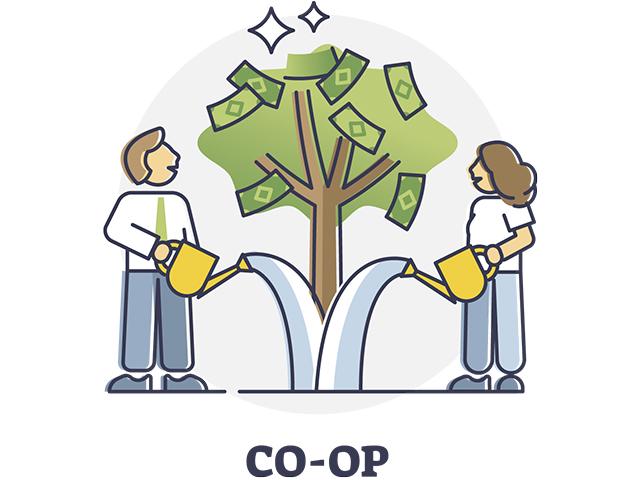Taxlink
Tax Tips for Co-op Patrons
The history of cooperatives is fascinating. The first recognized cooperative in the United States is credited to Benjamin Franklin. He set up a mutual fire insurance company, which is still in business today. Some of the first agricultural cooperatives were formed by dairymen and cheese manufactures. Shortly thereafter, other commodities formed cooperatives.
Cooperatives really took hold in the last half of the 19th century. As farms expanded west, low prices, wide marketing margins, interest rates and high transportation costs were affecting the ability to grow crops for profit. Cooperatives were formed to counter these issues by pooling resources and cutting out the middleman.
However, many failed due to bad business practices. In the early 1900s, American Farm Bureau Federation and National Farmers Union began to provide assistance to cooperatives and lobbied on their behalf. Many of the large cooperatives we have today grew from their assistance.
Although the federal government supported cooperatives, some read the Sherman Act to say co-ops violated antitrust laws. After much lobbying, Congress passed the Capper-Volstead Act, which authorized farmers to market and process their products collectively.
Here are a couple of interesting facts that are not widely known: Cooperatives have played a role in the civil rights movement. The Federation of Southern Cooperatives helped Black farmers gain access to markets and supplies in the segregated South. Today, large cooperatives have a role in influencing domestic and foreign ag policy.
P[L1] D[0x0] M[300x250] OOP[F] ADUNIT[] T[]
I'm not going to go into cooperative tax because that would be a very long article. But, I will go into a few tax issues that affect co-op patrons. Doing taxes for 22 years, I've seen many people report cooperative payments incorrectly. When people ask me for advice, I tell them when in doubt, call the cooperative. Most of the time, they will know the correct tax treatment or let you know the type of dividend they are passing out.
Cooperatives can pass out cash and noncash patronage to the patron. "Qualified" distributions allow the cooperative to deduct both cash and noncash payments, thereby reducing the cooperative's taxable income. In turn, the patron must recognize both the cash and noncash portions as income. In turn, the patron is treated as having received cash and reinvesting in the cooperative. This increases equity/basis in the cooperative. When the cooperative redeems equity in the future, the amount the patron receives will be tax-free. Essentially, you pay the tax up front, and the redemption is tax-free.
"Nonqualified" do not meet the requirements to be qualified, typically because less then 20% of the total distribution was paid in cash. The cooperative can't deduct the noncash patronage allocation, and the patron doesn't include it as taxable income. When the nonqualified equity is paid out in the future, the cooperative will receive a deduction, and the patron will recognize it as taxable income.
Which is better? It depends. Many people like that with nonqualified, the amount of cash received is the amount of income you recognize. For example, you receive $20 cash and $80 in equity. With qualified, you would recognize $100 in taxable income while only receiving $20 cash. In nonqualified, you would only recognize $20 cash, and the remaining $80 would be recognized when patronage equity is distributed at a later date. However, some patrons like that they have a tax-free distribution in the future. There is also the issue of the pass-through domestic production activities deduction (DPAD). Cooperatives issuing nonqualified distributions may have an advantage passing through more DPAD to patrons.
This is a very complex area of tax law. Talk to your tax professional or give your cooperative a call if you have questions about your patronage.
**
-- DTN Tax Columnist Rod Mauszycki, J.D., MBT, is a tax principal with CLA (CliftonLarsonAllen) in Minneapolis, Minnesota.
-- Read Rod's "Ask the Taxman" column at https://www.dtnpf.com/…
-- You may email Rod at taxman@dtn.com
[PF_0922]
(c) Copyright 2022 DTN, LLC. All rights reserved.




